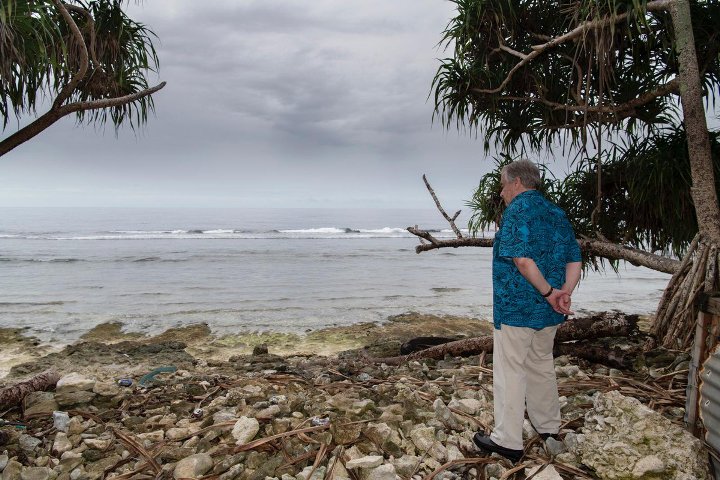Trade Wars deflated Climate Action in COP25 and hopes on Paris Agreement
The US-China Trade War is often in the limelight for its multi-dimensional nature and has become a synonymous to the trade war. However, the trade war per se is not singular in the contemporary world. The very existence of lesser highlighted trade wars at international as well as inter-regional level ultimately caused failure of the COP25 in Madrid.

- Country:
- Spain
The declaration of the failure of the COP25 did not come from any critique but directly from the UN Secretary General Antonio Guterres himself who in his inaugural address had cautioned the nations on climate emergency caused by unprecedented global warming. His views were supported by climate scientists and activists from about 200 countries in Madrid. The disappointmnt expressed by Guterres during closing ceremony leaves no cope to guess on failure of the largest ever Conference of Parties (COP).
Now, we have been given a new target to prepare for COP26 scheduled to be organized in Glasgow, United Kingdom from 9-19 November, 2020. The question is – what will change by then? Though the scientists, climate activists and the UN officials were looking much hopeful and confident during the COP25, only a few were sincerely expecting the desired output for effective implementation of the Paris Agreement. It was evident in a twitter based sentiment analysis of the two most popular twitter hashtags during the conference - #COP25 and #TimeForAction. Conducted during the conference, the sentiment analysis revealed that the people did not had trust in their governments on effective implementation of the Paris Agreement for peaking the 1.5 degree Celsius of global warming by 2030. This fear came true on the last day of the conference when it ended without any significant achievement.
“I am disappointed with the results of COP25. The international community lost an important opportunity to show increased ambition on mitigation, adaptation & finance to tackle the climate crisis. But we must not give up, and I will not give up,” said Antonio Guterres. He, however, added, “I am more determined than ever to work for 2020 to be the year in which all countries commit to do what science tells us is necessary to reach carbon neutrality in 2050 and a no more than 1.5-degree temperature rise.” Similar sentiments were also expressed by other eminent personalities and delegates. The teenage climate activist Greeta Thunburg said, “The science is clear but being ignored. Whatever happens we will never give up. We have only just begun,”. Though it seems a last minute failure, the COP25 was never a hope for critics. The desperate attempt to extend closing session by two days also proved to be just a PR exercise. There was nothing new in the speeches which could show some action but emotions all around.
Trade Wars: The Biggest Obstacles
The trade wars are the biggest obstacles in the path of reaching on a final implementation plan on the Paris Agreement. However, the trade war is generally used for the trade related conflicts between the US and China (US-China Trade War), it’s not singular on this globe. The hectic international and regional lobbying in the run up to the COP25 had indicated enough about its possible failure much before the inaugural ceremony.
After exit of the US from the COP, experts were expecting meaningful progress in the COP25. However, the announcement of the European Union (EU) on November 20 to impose ‘CO2 Border Tax’ on Chinese products came as a shocker. In retaliation, China warned that the proposed tax would damage fight on climate change. However, Mr. Frans Timmermans, the EU’s incharge of the Climate Change related issues pressed for his decisions from the platform of COP25. The EU claimed that the China was not implementing its commitment on emission cut while some reports also revealed that the EU itself failed to fulfill its own commitments. Besides, EU’s ‘green deal’ could not make any progress. Moreover, China also announced to continue with its plans of coal fired power projects. On one hand the EU was flaying China for emission but on the other hand it was seeking concessions for Poland which is dependent on fossil fuel.
The regional trade war was also severe between OPEC countries of the Middle East, Africa and Latin America. As their economy is dependent on fossil fuel particularly petroleum products, they opposed the provision of carbon marketing with tooth and nail. Here Brazil, Saudi Arab and UAE proved non-starter.
All these countries posed as champions of climate action but have come to seek relaxation to suite their trade interests and compete in the market with upper hand. India also stressed upon the need for fulfilling the pre-2020 commitments by developed nations and that pre-2020 implementation gaps should not present an additional burden to developing countries in the post 2020 period. The G20 countries which contribute maximum in the emission of the greenhouse gases were not on board due to their international and regional trade interests.
The Way Ahead
Providing a sustainable solution to the trade wars is pre-requisite for effective implementation of the Paris Agreement. The United Nations can’t ignore these trade wars whether they are in limelight or not. There is hardly any chance for the countries to come on board on climate action if they are engaged in trade wars either at international or inter-regional level. If the UN wants any solution from COP26, it must find out a sustainable solution for the ensuing trade wars.
(Disclaimer: The opinions expressed are the personal views of the author. The facts and opinions appearing in the article do not reflect the views of Devdiscourse and Devdiscourse does not claim any responsibility for the same.)
- FIRST PUBLISHED IN:
- Devdiscourse










